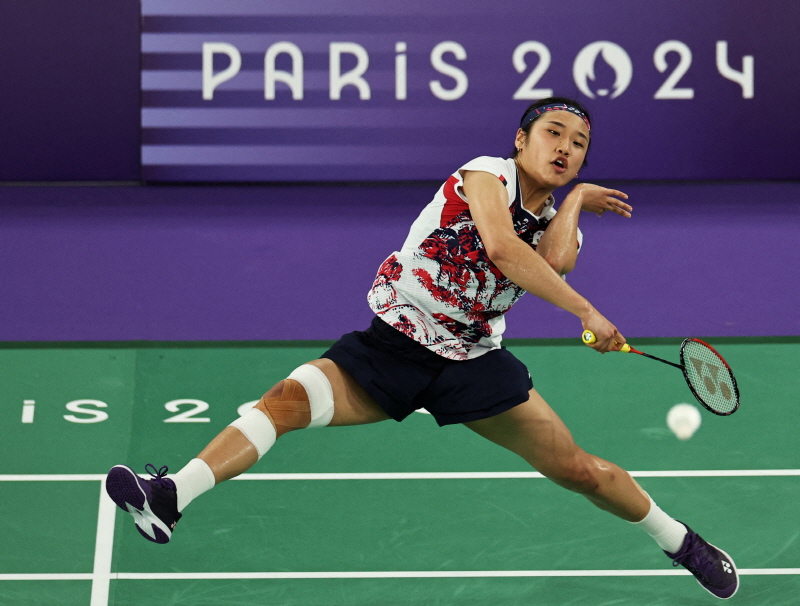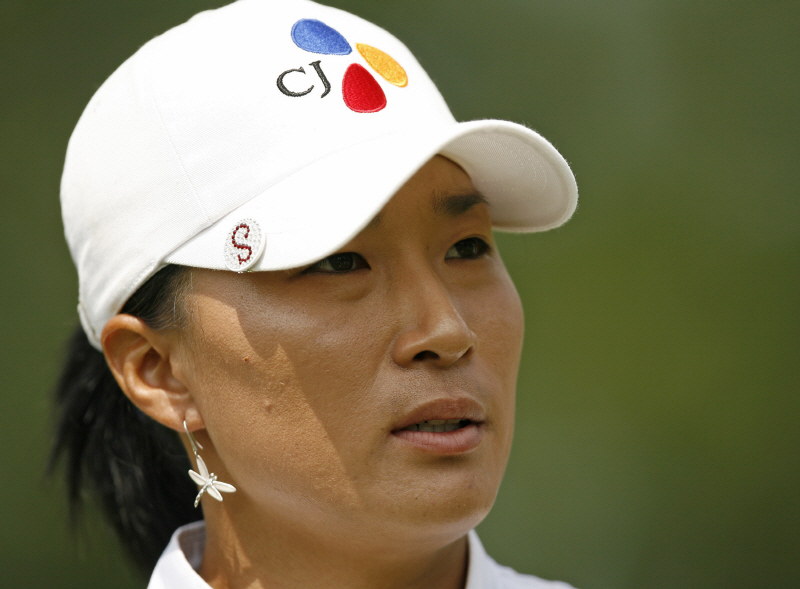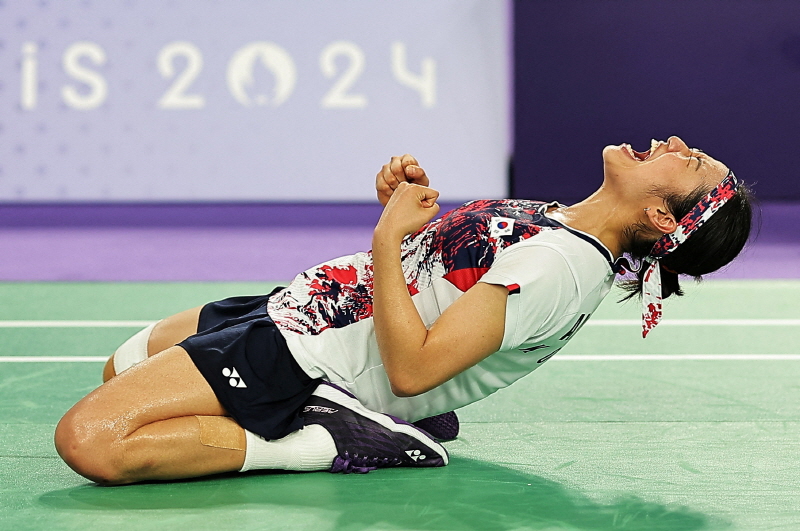In 1980, a Black man in the United States was watching a tennis match on TV when he was stunned to see a female player receiving $40,000 as prize money. The amount the player earned in a week exceeded his annual income.
He resolved then and there to teach his future daughter tennis. The result of that decision? Venus and Serena Williams.
The Williams sisters were, at least for their father, athletes driven by a financial vision, and they indeed earned tremendous amounts of money in line with that goal.

Similarly, after Seri Pak won the U.S. Women’s Open in 1998, she earned sums that were unimaginable for a Korean woman at the time. Pak’s massive earnings were likely a major reason why so many talented players turned to golf.
The key players of the “Seri Kids” generation, born in 1988, were around ten years old at the time. They may not have been fully aware of money, but their parents, like the father of the Williams sisters, knew that excelling in this sport could secure their daughters’ financial futures. This was especially true during the challenging period of the Asian financial crisis.
The controversy surrounding An Se-young, the 2024 Paris Olympic women’s badminton singles gold medalist, is still a hot topic. When it was revealed that An had signed an advertisement deal with Nike, she faced criticism for being “selfish” and doing it all “just for the money.”
An’s words were harsh, and she insulted some of her diligent colleagues and staff members. The timing was also inappropriate. However, the discussion about money is justified. While money isn’t everything, nothing is as important. Athletes, like anyone else, consider financial calculations.
In fact, the more outstanding the athlete, the more calculated they tend to be. Michael Jordan, during the 1992 Barcelona Olympics “Dream Team” gold medal ceremony, covered up the Reebok logo on his team jacket. It was a selfish act to protect his personal sponsorship with Nike.

If selfishness is to be discussed, golf is perhaps the most representative sport. Golf is a thoroughly individual sport where athletes have never had to pass the ball (sacrifice) to a teammate, unlike in team sports. But it’s precisely this selfishness that has helped make golf a somewhat popular sport.
The PGA Tour grew rapidly after breaking away from the PGA of America. The players’ desire not to share TV broadcast revenue with regular lesson pros overcame the golf establishment’s resistance and allowed them to become independent.
Tiger Woods, in his prime, often received $3 million in appearance fees to play in European or Asian tournaments instead of the PGA Tour. The PGA Tour pleaded with him, saying that without him, TV ratings would drop and it would be hard to secure sponsors, but Woods, a free agent, set his own schedule and paid no heed. His selfishness not only increased PGA Tour prize money fivefold but also helped globalize golf.
In 2002, when Seri Pak won the Office Depot Championship, she covered the Samsung logo on her cap with sunglasses. It was widely believed to be a protest, a kind of strike, to demand more money from her sponsor, Samsung. Samsung, which had supported Pak since her unknown days, felt betrayed and eventually withdrew from golf.

However, it didn’t end badly for Pak. She later wore a cap bearing the CJ logo and earned 2.5 billion won ($1.8 million) annually. For Pak, being valued was more important than loyalty. Her actions were controversial, but her selfishness undeniably contributed to the growth of golf.
Like other areas, professional sports have a history of struggle. In Major League Baseball, as far back as 1969, a player criticized the rule that a player couldn’t become a free agent without the team’s consent, calling it a modern form of slavery, and took legal action.
In American professional sports leagues, players have gone on strike multiple times to protect their rights (and money). The leagues or team owners responded with lockouts. Sometimes the players won, and sometimes the owners, but overall, the players emerged victorious. Player compensation increased, and popularity remained steady.
As Adam Smith once said, it’s the baker’s self-interest that allows us to eat bread. Similarly, the ambition of star athletes has helped their sports grow.
The South Korean Badminton Association emphasizes the unique challenges faced by less popular sports. They maintain caps on salaries, de facto mandatory national team service, and de facto bans on personal sponsorships—clauses that have been disappearing in other sports due to controversy over slave contracts.
The association argues that without the sacrifice of a few star players, it would be impossible to maintain corporate teams or develop junior players. They claim that the very foundation of badminton would collapse, leading to the sport’s downfall. Bang Soo-hyun, the 1996 Atlanta Olympic gold medalist, once said, “All athletes wear the national flag and play in ‘such an environment.’”

However, it’s not because a sport is unpopular that stars should sacrifice themselves; it’s because the sport is unpopular that stars should be cherished and nurtured. At the end of the 20th century, Bang Soo-hyun’s popularity may have surpassed An Se-young’s today. What if Bang had broken free from the shackles of the association back then? Would players still be playing in such an environment?
The association is the one lacking in competence. Former Dong-A Ilbo journalist Kim Hwa-sung wrote in Shindonga, “Table tennis star Shin Yu-bin earns a salary of 240 million won, appears in more than ten commercials, and earns significant appearance fees at various events. How does the Table Tennis Association, which has given its representative players such freedom, manage to operate without issue? The population of badminton players far exceeds that of table tennis.”
Given that it’s an amateur association, a lack of marketing ability might be understandable, but it’s astonishing that they don’t even allow players to use the brand of shoes and rackets they prefer, which are crucial to their performance.
In a recent statement, An Se-young said, “I don’t consider badminton to be an unpopular sport, but if it evolves for the better, it could become a sport enjoyed by even more people, and more talented individuals could be drawn to it.” I agree with this sentiment.
Australia has a cultural concept known as the “tall poppy syndrome,” where it is believed that tall poppies, which stand out too much from the crowd, should be cut down to maintain social harmony and balance. After the Korea Sports Council and the National Sports Promotion Organization merged in 2016, this sentiment seems to have taken root in some associations, including the Badminton Association.
If we can live in harmony among ourselves, that’s fine. But when it comes to international competitions like the Olympics, true abilities are revealed. If tall poppies are consistently cut down in favor of uniformity, eventually, the average height of the poppy field will decrease.

In Korea, badminton will cease to be an Olympic medal sport and become a purely recreational one, with sponsorship funds for the national team dwindling. The Badminton Association has already cut down Lee Yong-dae, a tall poppy. If they also cut down An Se-young, the future of Korean badminton is bleak. Promising young athletes may wonder if it’s worth excelling in the sport, and parents may decide not to encourage their children to pursue badminton.
An Se-young grew up with the support of the Badminton Association. There is criticism that she is now trying to kick away the ladder after climbing it. But that very system was created to produce at least one standout player like her.
The association should not demand repayment from An Se-young. She owes the Badminton Association nothing. By winning the first women’s singles gold medal in 28 years, An Se-young has repaid badminton many times over.
A badminton insider once told me, “If An Se-young wants to make money selfishly, she should have played golf, a popular sport. Why did she choose badminton?” But it was the kind of selfishness demonstrated by Seri Pak’s sunglasses strike that helped make golf a popular sport.
BY HOJUN SUNG, YOUNGNAM KIM [sung.hojun@joongang.co.kr]




